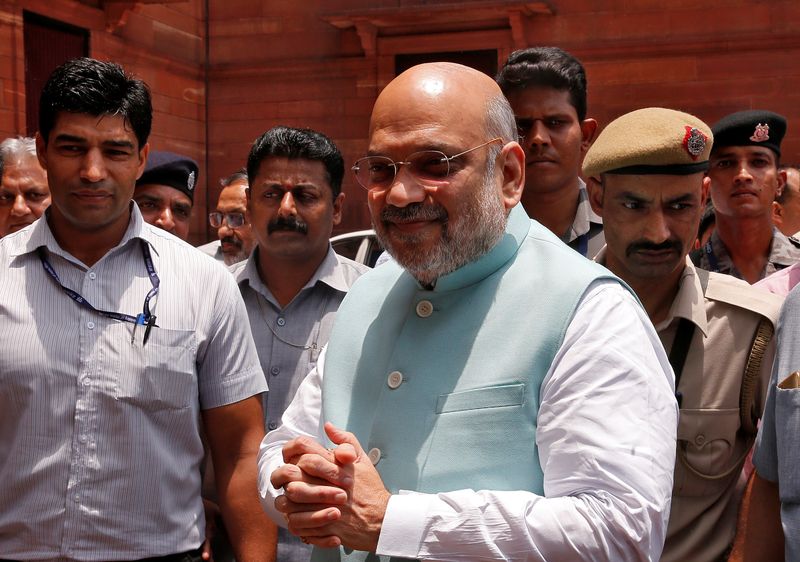By Kanishka Singh and Sarita Chaganti Singh
WASHINGTON/NEW DELHI (Reuters) -The Canadian government alleged on Tuesday that Indian Minister of Home Affairs Amit Shah, a close ally of Prime Minister Narendra Modi, was behind the plots to target Sikh separatists on Canadian soil.
The Indian government did not immediately respond but has dismissed Canada's prior accusations as baseless, denying any involvement.
The Washington Post newspaper first reported that Canadian officials alleged Shah, considered the number two in the Modi government, was behind a campaign of violence and intimidation targeting Sikh separatists in Canada.
Canadian Deputy Foreign Affairs Minister David Morrison said to a parliamentary panel on Tuesday that he told the U.S.-based newspaper that Shah was behind the plots.
"The journalist called me and asked if it (Shah) was that person. I confirmed it was that person," Morrison told the committee, without providing further details or evidence. The High Commission of India in Ottawa and the Indian foreign ministry had no immediate comment.
The Indian home ministry directed queries to the foreign ministry.
Canada told India about Shah's alleged role in the plots around October 2023, one Indian government source told Reuters in New Delhi on Wednesday.
But New Delhi thinks the information is very weak, flimsy and does not expect it to cause any trouble for Shah or the government, the source and another government source said.
Both spoke on condition of anonymity as they are not authorised to speak to the media.
India has called Sikh separatists "terrorists" and threats to its security. Sikh separatists demand an independent homeland known as Khalistan to be carved out of India. An insurgency in India during the 1980s and 1990s killed tens of thousands.
That period included the 1984 anti-Sikh riots that left thousands dead following the assassination of then-Prime Minister Indira Gandhi by her Sikh bodyguards after she ordered security forces to storm the holiest Sikh temple to flush out Sikh separatists.
Canada in mid-October expelled Indian diplomats, linking them to the 2023 murder of Sikh separatist leader Hardeep Singh Nijjar on Canadian soil. India also ordered the expulsion of Canadian diplomats.
The Canadian case is not the only instance of India's alleged targeting of Sikh separatists on foreign soil.
Washington has charged a former Indian intelligence officer, Vikash Yadav, for allegedly directing a foiled plot to murder Sikh separatist leader Gurpatwant Singh Pannun, a dual U.S.-Canadian citizen and Indian critic in New York City.

The FBI warned against such a retaliation aimed at a U.S. resident. India has said little publicly since announcing in November 2023 it would formally investigate the U.S. allegations.
The accusations have tested Washington and Ottawa's relations with India, often viewed by the West as a counterbalance to China.